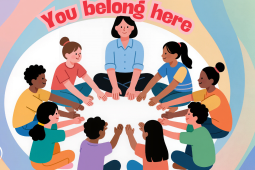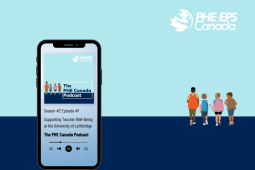The Top 5 Reasons to Visit TeachResiliency.ca…Often.

The Top 5 Reasons to Visit TeachResiliency.ca…Often.
Today we launch the first entry in our blog series, and are proud to introduce you to TeachResiliency.ca. These blog posts will keep you informed about current trends, issues, tools and strategies to assess the resilience of students and teachers. We invite you to come in, connect, and participate. This site is for you.
What better way to launch the blog than to highlight some of the reasons that TeachResiliency.ca will be helpful in your practice and profession? Let’s take a look at the top 5 reasons to visit TeachResiliency.ca!
1. A lot of teachers are doing a lot of great teaching, supporting, and leading. Celebrate, get inspired.
There are nearly 400,000 teachers in Canada, responsible for about 5 million school children. The work and magic of teaching isn’t often a “Hollywood moment”. Long hours, the needs of many students, doing-more-with-less (of everything!) layers on top of busy lives, lively classrooms and waves of colds, flu, head lice, and muddy boots. The real work is often quiet, invisible and isolated. The real work is hard and requires us to be so flexible we fear we might break, so resilient we fear we might harden, and so enthusiastic we worry we might burn out.
2. Teachers make a difference.
I’m fortunate to have had many teachers who made really important connections and differences in my life. How about you? From Grade 1 through university I was fortunate to have wonderful teachers. Mrs. MacDonald opened the world of reading to me in Grade 1, Mr. Crowell showed me the universe in Grade 6, and Miss Mitchell helped me see myself as a capable student when I was a teen. They noticed, listened, inspired and supported me and, in what was often turbulent and unpredictable life, they made school my safe haven; they were my mentors, motivators, and muses. Teachers don’t just deliver curriculum; they encourage students to take risks, create communities of learners, support and scaffold so each student is achieving more than they thought possible, and witness big and small victories and defeats every single day.
3. Wellness must be supported, nurtured and championed.
The research tells us that 20 % of Canadians- from age 4 to 84- will develop a mental illness during their lives. It also shows us that only 1 in 5 people who suffer a potentially debilitating and destructive illness get help through the health care system. If 5 children broke their arm on the playground, would we stand by and watch as only 4 of them got medical treatment? If 5 adults had diabetes, would we be content if only 4 of them received medication?
Of course, the 20% figure includes adults, and those adults, include teachers. How many times have you heard anyone talk about teacher wellness or the challenges and barriers to the mental health of teachers? To teach well, we must be well, and to be well, we must take care of ourselves and one another.
4. Most teacher education and professional development programs do not prepare teachers to talk about or support mental health in schools.
The research is clear on this: only a few teacher education programs expose candidates to the topic of mental health or provide relevant and useable strategies and tools for the classroom. Fewer still, include teacher wellness in the orientation to the professional knowledge of teachers. When talking to teachers who are working in schools, 90% express an interest in learning more about meeting the mental health needs of their students, and over 80% feel they are not achieving work-life balance; they feel they aren’t meeting the needs of their families or their students.
5. Teachers are critically important to a healthy school and without them, we cannot meet our goals for healthy students, schools, families, and communities. Your professional knowledge and commitment are integral.
When teachers are included in developing whole school approaches to student success, everyone benefits. They stand at the intersection of health and education and understand the importance of and pathways toward safe and secure housing, nutritious food, healthy families and equal opportunities for all. When students find success in the classroom, they are motivated to do well in other parts of their lives. When teachers are supported to create healthy classrooms, we all benefit.
We look forward to seeing you again soon!








